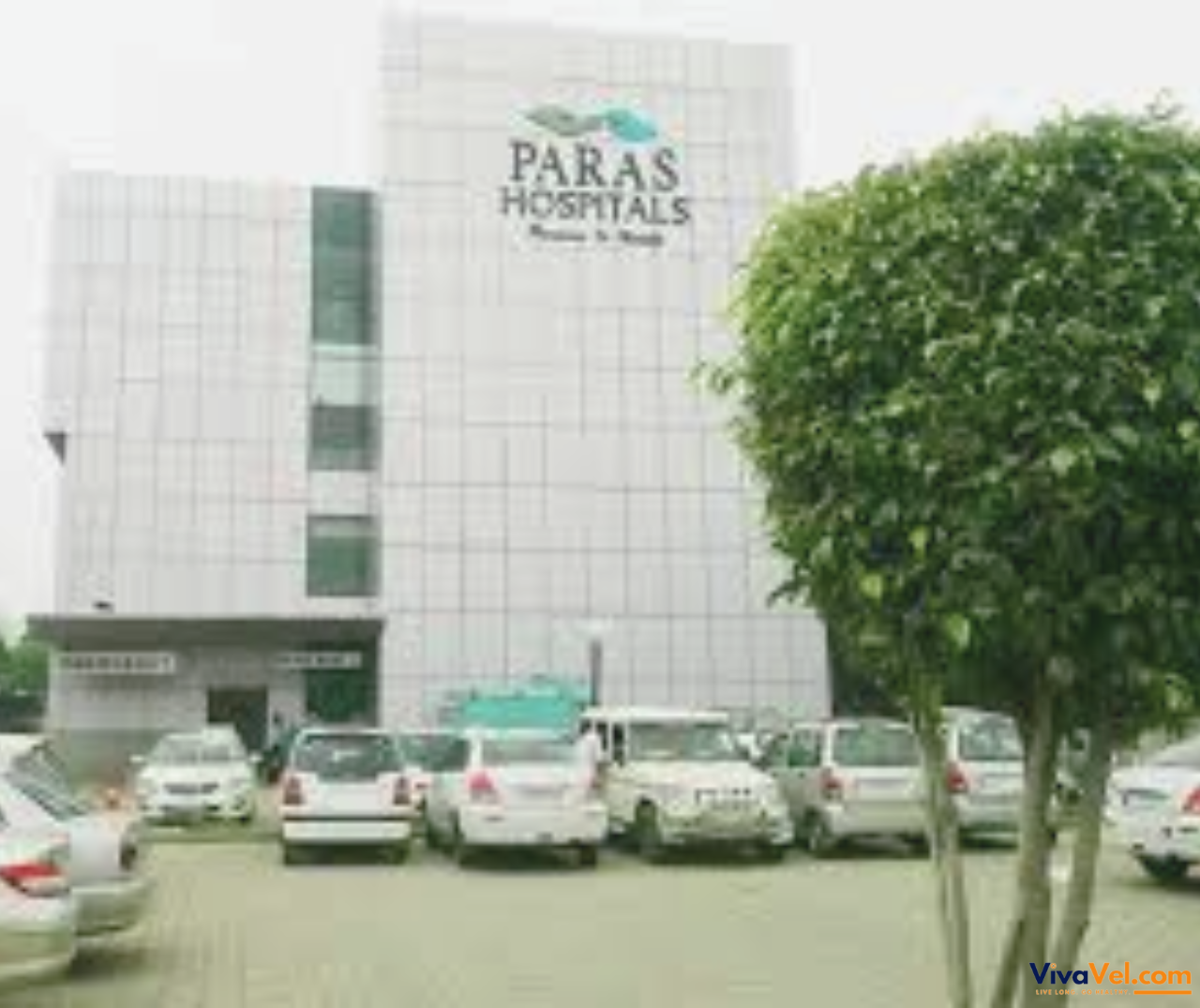info@vivavel.com
+919818262686
+919818262686
 info@vivavel.com
info@vivavel.com +919818262686
+919818262686Prostate cancer is a common type of cancer that affects the prostate gland, which is a small gland in men that helps produce seminal fluid. This cancer typically occurs in older men, with risk increasing as they age. Prostate cancer can grow slowly, which means some men may not even need immediate treatment. However, in other cases, it can grow aggressively and spread quickly to other parts of the body.
Men with prostate cancer might experience symptoms like difficulty urinating, pain during urination, or blood in the urine. Other signs can include pain in the lower back, hips, or pelvis. It's important for men to discuss any unusual symptoms with their doctors.
Doctors often diagnose prostate cancer through a combination of blood tests, physical exams, and biopsies. Treatment options include surgery, radiation therapy, hormone therapy, or active surveillance for less aggressive cases. Early detection and treatment significantly improve outcomes. Regular checkups and conversations about prostate health can help catch issues early. Being informed about prostate cancer is crucial for men, especially as they age.
 Early stages of prostate cancer often show no symptoms, but as the disease progresses, some symptoms may appear:
Early stages of prostate cancer often show no symptoms, but as the disease progresses, some symptoms may appear:
Difficulty urinating or a weak urine stream
Frequent need to urinate, especially at night
Blood in the urine or semen
Pain or discomfort in the pelvic area
Erectile dysfunction
Pain in the back, hips, or legs (in advanced stages, when cancer spreads)
Note: These symptoms can also be caused by other conditions, like an enlarged prostate (BPH), so it's important to get checked.

 The exact cause of prostate cancer is not known, but it happens when cells in the prostate begin to grow uncontrollably. Some contributing factors include:
The exact cause of prostate cancer is not known, but it happens when cells in the prostate begin to grow uncontrollably. Some contributing factors include:
Genetic mutations: Changes in DNA can trigger uncontrolled cell growth.
Family history: Men with a family history of prostate cancer are at higher risk.
Age: Prostate cancer is more common in men over 50.
Race: African American men have a higher risk of developing and dying from prostate cancer.
If you notice difficulty in urinating or a weak urine flow.
Any blood in your urine or semen.
Unexplained pain in the lower back, hips, or legs.
Frequent urination, especially during the night.
It's essential to have regular checkups, particularly if you have risk factors such as age or a family history.
 Doctors use several tests to diagnose and assess prostate cancer:
Doctors use several tests to diagnose and assess prostate cancer:
PSA Test (Prostate-Specific Antigen): Measures PSA levels in the blood. High levels may indicate cancer, but can also be due to other conditions.
Digital Rectal Exam (DRE): The doctor feels the prostate through the rectum to check for lumps or abnormalities.
Biopsy: A small sample of tissue is taken from the prostate and examined under a microscope.
MRI or CT Scan: These imaging tests can provide detailed pictures of the prostate and help identify the size and spread of the cancer.
Bone Scan: If the cancer is advanced, this test checks if it has spread to the bones.
 Do's:
Do's:
Eat a healthy diet: Focus on fruits, vegetables, and whole grains.
Exercise regularly: It helps maintain a healthy weight and boosts overall well-being.
Get regular screenings: Men over 50 (or younger if high risk) should have regular PSA tests and DRE exams.
Stay informed: Learn about treatment options and discuss them with your doctor.
Talk to your doctor: Keep open communication about any symptoms or concerns.
 Don'ts:
Don'ts:
Avoid high-fat foods: Limit red meat, dairy, and processed foods.
Don't smoke: Smoking increases the risk of several cancers, including prostate cancer.
Don't ignore symptoms: Early detection makes treatment easier and more effective.
Limit alcohol: Excessive alcohol intake can increase the risk of cancer.
Disclaimer:
Our medical content authors have diligently gathered and synthesized information on this topic to offer valuable insights to our readers. Drawing from a range of reputable medical journals and health resources, this content aims to enhance understanding of the subject. It's essential to remember that while this information is informative, it should not replace personalized consultation or treatment from a qualified healthcare professional. For further details, please refer to our Editorial Policy.
For this topic, our authors used some of the following resources:
Mayo Clinic | Prostate Cancer: Diagnosis & Treatment
Cleveland Clinic | Prostate Cancer: Symptoms, Causes & Treatment





![]() Pusa Road, Radha Soami Satsang, Rajendra Place New Delhi, 110005 India
Pusa Road, Radha Soami Satsang, Rajendra Place New Delhi, 110005 India



![]() Budena Village, Sector 86, Faridabad, Haryana 121002, India
Budena Village, Sector 86, Faridabad, Haryana 121002, India



![]() Golf Course Rd, Parsvnath Exotica, DLF Phase 5, Sector 53, Gurugram, Haryana Gurgaon, 122022 India
Golf Course Rd, Parsvnath Exotica, DLF Phase 5, Sector 53, Gurugram, Haryana Gurgaon, 122022 India



![]() C-1, Sushant Lok- 1, Sector-43, Phase- I, Gurugram, Haryana, 122002
C-1, Sushant Lok- 1, Sector-43, Phase- I, Gurugram, Haryana, 122002


Dr. Pooja Agarwal stands out as one of the oncologists in Kolkata, specializing in breast cancer surgery. With over 10 years of experience, she has earned a reputatio...

Dr. Harsh Vardhan Atreya is a prominent Consultant Medical & Hemato-Oncologist specializing in Bone Marrow Transplantation. With training from esteemed institutio...

Dr. Imran Khan has joined Fortis Escorts in Okhla Road, New Delhi, as an Associate Consultant in Medical Oncology. He brings over 12 years of experience in oncology. ...

Dr. Harit K Chaturvedi heads the Max Institute of Cancer Care. He has been with Max Healthcare since 2009 and has worked hard to create one of the best cancer treatme...

Dr. Asit Arora is a highly regarded Surgical Gastroenterologist specializing in Gastrointestinal and Hepat-pancreato-biliary (HPB) surgery. He is based in the Delhi N...

Dr. Nikhil Agrawal is a distinguished Gastrointestinal (GI) and Hepato-Pancreato-Biliary (HPB) Surgical Oncologist, serving as the Director of GI-HPB Surgery and Oncology at ...
Treatment Plan & Cost within 2 days
